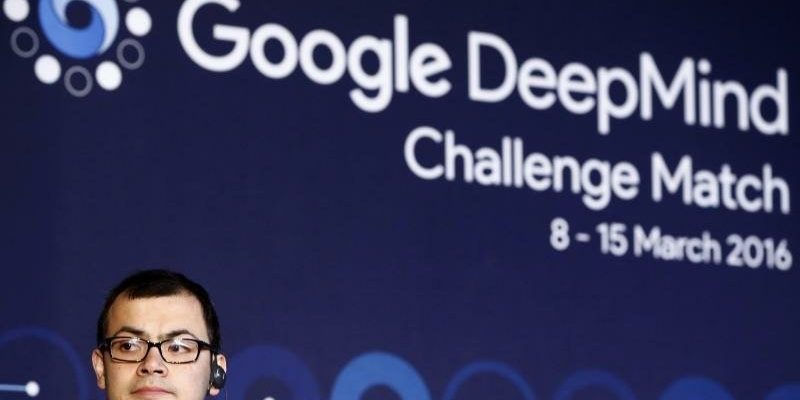AI research at Google is now taking place under the same management and with a common brand: The AI research department Brain and the start-up DeepMind, which is affiliated with the group, are now officially merging in Google DeepMind. The development had already been indicated since Google had committed its two AI subsidiaries to work together on a large language model as Project Gemini in March 2023. At the time, it was said that other Google teams were also continuing to develop various large AI models, and Google, like Microsoft, had begun to integrate AI applications across its product portfolio into its own Office suite and into its cloud services.
Sundar Pichai and Demis Hassabis announce merger
Google parent company Alphabet CEO Sundar Pichai and DeepMind CEO and co-founder Demis Hassabis announced the merger to the outside world in two separate timed blog posts on the evening of April 20. The workforce had previously heard about the merger internally in writing. The previous head of Google Brain Jeff Dean will be promoted to chief scientist at Google and will determine the direction of AI research together with Demis Hassabis. While Dean takes over the overall scientific leadership, Hassabis will lead the development of large general-purpose AI systems as CEO of Google DeepMind. The first goal of Google DeepMind is a set of powerful, multimodal AI models.
Google Research will continue basic research in the areas of algorithms, theory, data protection, security, quantum computing, health, climate, sustainability and Responsible AI (responsible AI). The previous tech and society team led by James Manyika appears to remain in place.
Competition and acceleration as a background
Artificial intelligence (AI) and, with a view to the future, also strong AI (Artificial General Intelligence, AGI) will potentially bring about one of the greatest social, economic and scientific upheavals in history, Hassabis wrote to his employees via email. In the future, the parent company will therefore bundle the research of the Brain team and DeepMind into a single unit in order to be more effective in competition with other providers and to make faster progress.
Hassabis’ mail is published on the DeepMind blog. As a result, he has started coordinating AI research with the executives of Alphabet and Google Brain in recent months. A new scientific oversight board will be established for Google DeepMind to guide the work and direction of the new organizational unit, led by new vice president Koray Kavukcuoglu, who previously led research at DeepMind in this role. The exact composition of the governing body will be determined in the coming days. An internal townhall meeting of DeepMind staff is scheduled for Friday April 21st.
The announcement of the merger can be in full in DeepMind’s blog as well as on the Keyword web page from Google read.
AI advancements by DeepMind and Google
Demis Hassabis co-founded DeepMind with Shane Legg in London in 2010. Google bought the start-up in 2014 for around half a billion US dollars. Since 2016, according to Sundar Pichai, the company’s focus has been on AI (AI first), and since then Google has integrated AI into numerous products, namely YouTube, Gmail and the camera of Pixel smartphones and in the cloud division. Both AI teams have done pioneering work in recent years. Google created the Transformer architecture, as did many of the tools and techniques used today to train large machine learning models, such as TensorFlow, deep reinforcement learning, model distillation, and machine learning across distributed systems.
The British company DeepMind had developed AlphaGo, the first AI system that could beat a human at the game of Go: the world’s best Go player at the time Lee Sedol competed against the computer program in 2016 and lost four out of five games – AlphaGo is still considered a milestone in machine learning. With AlphaFold, the British succeeded in the summer of 2022 in determining the 3D structures of almost all known proteins – the technology revolutionized pharmaceutical research overnight, and the science magazine Science dedicated a special issue to the work at the time.
(her)

